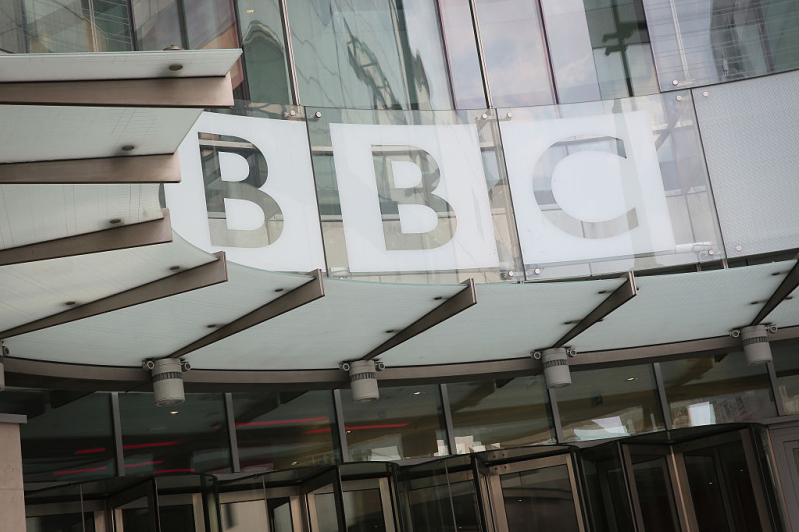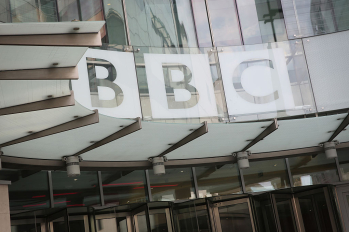
The BBC is facing scrutiny over its handling of transgender-related issues, following two separate reports that have ignited debate about editorial impartiality and internal culture at Britain’s public broadcaster.
A leaked internal memo reported by The Telegraph on Tuesday (Nov. 5) alleges that a small group of LGBT reporters at the BBC have exerted “effective censorship” over coverage of gender-identity issues, promoting one-sided narratives that “celebrate the trans experience without adequate balance or objectivity.” The following day, the BBC’s Executive Complaints Unit (ECU) formally rebuked senior presenter Martine Croxall after she corrected the term “pregnant people” to “women” live on air — a move that the BBC ruled had expressed “a particular viewpoint” in an ongoing public controversy.
Together, the two incidents have renewed criticism that the BBC has been “captured by trans ideology,” amid wider concerns over how the institution defines impartiality in reporting contentious social issues.
Internal memo alleges pro-trans ‘capture’ of BBC coverage
According to The Telegraph, the 19-page memo was written by Michael Prescott, who served until June as an independent adviser to the BBC’s Editorial Guidelines and Standards Committee. Addressed to members of the BBC Board and now circulating in government departments, the document accuses the corporation’s LGBT desk of blocking or sidelining stories that present gender-critical viewpoints and failing to clearly acknowledge biological sex in its reporting.
Prescott warned that the BBC’s coverage risked “confusing viewers” and undermining public trust by presenting “gender identity” as an established fact rather than a contested concept. He wrote that BBC journalists who attempted to raise alternative perspectives faced internal resistance, and that “a small group of people” within the LGBT desk effectively decided which stories reached air.
Among examples cited were the broadcaster’s failure to cover the 2024 leak of internal documents from the World Professional Association for Transgender Health, which raised concerns about treatment standards for gender-distressed children, as well as legal disputes over women’s changing rooms and prisons. Other outlets including The Times, The Economist, The Washington Post, and The Daily Mail reported those stories, but the BBC did not, the memo said.
The leaked document further claimed that stories such as the conviction of transgender murderer Scarlet Blake were initially misreported — with Blake described simply as a woman — before the wording was later changed to “transgender woman.” Prescott suggested such errors reflected either “capture by a particular lobby” or “nervousness when reporting these subjects.”
Lord Michael Grade, chair of Ofcom, has reportedly written to BBC Chairman Samir Shah urging a “thorough” review of the allegations. In Parliament, Conservative leader Kemi Badenoch said “heads should roll” if bias was confirmed.
In response, a BBC spokesperson told The Telegraph that while the corporation does not comment on leaked documents, it “takes feedback seriously,” has updated its style guide on sex and gender, and continues to “review coverage to reflect developments such as the recent Supreme Court ruling” on the definition of biological sex.
Presenter reprimanded over ‘pregnant people’ remark
In a separate report by Deadline on Wednesday (Nov. 6), the BBC’s Executive Complaints Unit upheld complaints against veteran presenter Martine Croxall, who in June changed her autocue from “pregnant people” to “women” while reading a news script about heatwave risks. The ECU found that her accompanying facial expression — described by complainants as showing “disgust, ridicule, contempt or exasperation” — gave the impression that she was expressing a personal opinion on a controversial topic.
The ECU concluded that, even if inadvertent, Croxall’s reaction “fell short of the BBC’s expectations of impartiality.” The ruling was discussed with BBC News management and the presenter herself.
Croxall’s remark had originally gone viral, drawing public praise from author J.K. Rowling, who called her a “new favourite BBC presenter.” At the time, BBC News executives reportedly defended Croxall’s choice, saying the style guide does not require the phrase “pregnant people.” However, the ECU’s later ruling reversed that informal support.
According to Deadline, one BBC insider commented that the decision would likely be “grist to the mill” for those who believe the corporation has been captured by trans activism.
The ruling came less than 24 hours after The Telegraph published its exposé on alleged editorial bias, intensifying debate about whether institutional pressures within the BBC have tilted its coverage.





